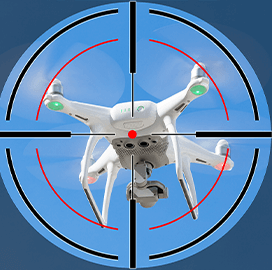
Safety challenges
DARPA Enabling Military Systems to Safely Accommodate Unforeseen Modifications
The Defense Advanced Research Projects Agency on Tuesday announced the development of the Learning Introspective Control program, which aims to develop machine learning-based introspection technologies that enable systems to “adapt their control laws as they encounter uncertainty or unexpected events.” The program allows older military systems to be upgraded safely by anticipating risks that may otherwise be unforeseen, DARPA said.
DARPA program manager John-Francis Mergen said that while today’s military systems have exquisitely built control systems, the moment something is added or a modification is made, safe operating limits are inevitably affected.
Mergen said that changes to legacy systems are being done in a way that were not anticipated, or could not have been anticipated, by the original designers. Greater adaptability is necessary, knowing that most military systems will undoubtedly need to be altered at some point in their lifecycle, he added.
Cited as an example is the High Mobility Multipurpose Wheeled Vehicle, or the familiar Humvee, which had a design life of 15 years, but is now undergoing modernization to extend their average age to almost 40 years. Adapting the vehicles is currently done in an improvisational manner, often involving custom-tailored aftermarket remedies. As Humvees evolve and are placed outside of their original design envelope, such systems can fail unexpectedly or become unintentionally dangerous, it was stressed.
Mergen said that developing LINC technologies will require addressing a specific set of challenges related to learning control and communicating situational awareness to the operator. Current state-of-the-art ML approaches were described as being “not robust to unknown or unstructured parameter uncertainty.” With LINC, DARPA wants to provide physical systems with the ability to figure out what is still feasible, alert the operator, and then help them work in that new space, the official added.
LINC’s first research area will seek to overcome existing limitations in learning models and ML techniques that currently hamper system adaptation, Mergen said.

Category: Future Trends




